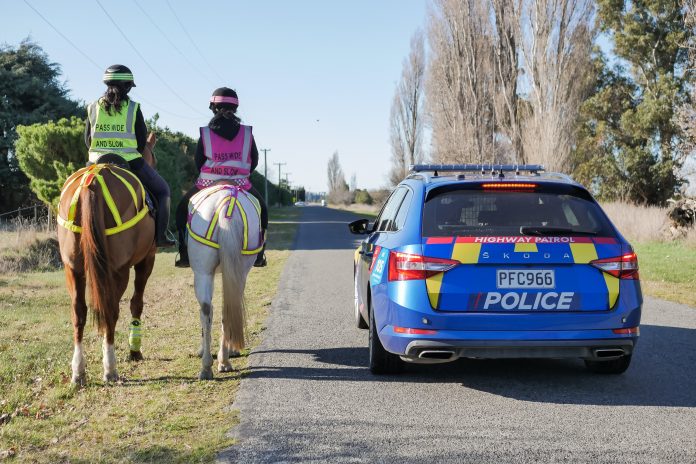
Outlying police stations could be closed and staff numbers in the Aoraki policing district reduced under a new proposal by New Zealand Police.
A two-week consultation period began last week and was open to all staff in the district, which covers Rakaia to the Waitaki River.
District commander Superintendent Tony Hill said the the consultation was part of a programme of work to enhance the frontline’s ability to deliver core policing services.
‘‘The environment around us is changing and we must change too,’’ he said.
‘‘We need a district structure that is fit for purpose and supports us to achieve our goals now and in the future. Our goal is to ensure we are visible and able to respond to our community’s changing needs.
‘‘It is important to note these are proposed changes, and no final decisions have been made. As such, it would not be appropriate for me to release specific details at this stage.’’
The Courier understands the proposal would see a significant reduction in staff numbers in Methven, Temuka and Waimate while police stations in St Andrews, Pleasant Point and Rakaia could be closed.
An example seen by The Courier revealed staffing in the Waimate district — currently one sergeant, five constables, one constable at St Andrews and one receptionist — could, under the new proposal, be reduced to two community liaison constables.
Every other position would be disestablished and the Waimate district covered by police from Timaru.
New Zealand Police Association president Chris Cahill said while he was unable to release exact details of the review, it was significant.
‘‘It’s a review that impacts metro Christchurch, rural Canterbury and the Aoraki district. It will have a significant impact on how policing is delivered in these communities.
‘‘Because it’s so big, it’s not something you can just form an opinion for or against.
‘‘It’s something that we need to consult with our members and understand the impact.
‘‘I’m sure parts of it we’ll think will be very good. Other parts we might not think are quite so good, but we need to work through that.’’
Mr Cahill said he believed it was important the affected communities were also consulted.
‘‘I’m just a bit confused why they’re not going through the process with the staff and the community at the same time.
‘‘It needs to be very clear to [the communities] that this will be a significant change to how policing is delivered in those communities.
‘‘They need to be able to understand what that change would mean for them. So, as an example, some areas might get more 24-7 police coverage, and that might be a positive. But it may be at the expense of having that more local presence all the time.
‘‘It’s a matter of them understanding that and deciding which is better. Because the reality is it’s hard to have your cake and eat it.’’
It was important that communities were given a full briefing with no smoke and mirrors, he said.
‘‘What does that mean for how policing will be delivered? Who is it? Does it mean there’ll be more people available if I have an emergency? Does it mean there’s less?
‘‘Those sorts of things need to be very clearly articulated to the communities.
‘‘They need to be able to question that, and see whether they agree with that assessment or not.
‘‘There’s certainly a lot to digest in these proposals.’’
The Courier understands the area commander is addressing district councils on the proposal this week.




